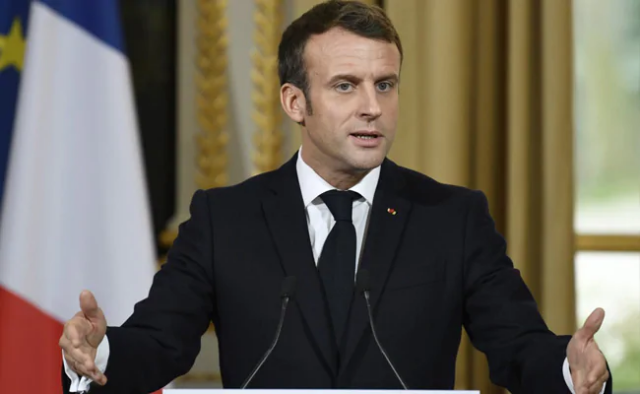
NEW DELHI: Emmanuel Macron’s failure to win an outright majority in the legislative elections proves the sheen around the French president who won the second round of the presidential elections in April, is disappearing. Though his Ensemble (Together) coalition is still the biggest with 245 seats in the National Assembly it is well short of the 289 seats required in the 577-member chamber. It means the president and his partymen will have to fight for every piece of legislation including key reforms such as raising the pension age from 60 to 65. Macron will have to focus more on domestic issues, which means that much less attention on Ukraine.
Domestically, it’s clear Macron has a mountain to climb. Right-wing leader Marine Le Pen’s party the Rassemblement National Rally (RN) won a record 89 seats – she won six in 2012 and eight in 2017 – showing France’s rightist tilt. On the left, Jean Luc’s Mélenchon coalition the New Popular Union (NUPES) won a staggering 141 seats. Both leaders are at odds with Macron and reject his pro-European outlook. Melenchon has called for a “break from European treaties” if they go against France’s interests while Le Pen wants a “looser coalition of European nations.”
Not surprisingly then key members in Macron’s cabinet are aghast at the results. Speaking on television, Finance Minister Bruno Le Maire acknowledged that the results were a “democratic shock” and warned that should the other blocs decide not to cooperate “this would block our capacity to reform and protect the French.” What Le Maire left unsaid was that the government, especially the president, would now have to reach out to the Opposition something that may not sit easily with Macron’s “aloof” and “elitist” image. Add to that, neither Melenchon nor Le Pen may want to be seen to be openly agreeing on key legislation proposed by a government currently dubbed in France as a “government for the wealthy.”
The solution then for the government would be to win over adequate numbers to its side. But while Macron and his party may be able to do that there is a bigger problem that needs to be considered. India’s former ambassador to Paris Mohan Kumar, points out that the polarised positions of each of the main candidates suggests that the informal understanding of the centrist and leftist parties which was to keep right-wing candidates out of the reckoning, seems to be fading. This understanding goes all the way back to 2002 when the then president Jacques Chirac beat Marine Le Pen’s father, Jean-Marie Le Pen. If it is indeed fading, it will mark a seminal moment in French politics where the right-wing could dominate in the years ahead. Already, there are signs that Marine Le Pen will be a towering presence in the Assembly and will look to expand her image and popularity with more radical rightist and leftist members to try and eventually become president.
The other issue is that with Macron unable to run for a third term, as France’s constitution prohibits it, a section of his own partymen may soon start sniping. Ambassador Kumar points out that while the French presidential system does not allow Macron to be ousted by his partymen, they can make life difficult for the president when passing legislation. The result could be chaos when it comes to governing France.
With everything in disarray, it remains to be seen how strong a voice can Macron project on the international stage. Though French presidents have generally had a free hand on foreign policy matters it seems unlikely Macron can carry the same clout as he did earlier. The ripple effect will be felt by the US, Brussels, Russia and others that have looked to France to play a stabilising role especially on key issues such as the Russia-Ukraine war. With Macron hobbled that now looks likely to change.
Traveller, bibliophile and wordsmith with a yen for international relations. A journalist and budding author of short fiction, life is a daily struggle to uncover the latest breaking story while attempting to be Hemingway in the self-same time. Focussed especially on Europe and West Asia, discussing Brexit, the Iran crisis and all matters related is a passion that endures to this day. Believes firmly that life without the written word is a life best not lived. That’s me, Ashwin Ahmad.




